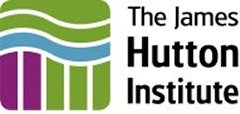The overall objective of the Water Framework Directive is to bring about the effective co-ordination of water environment policy and regulation across Europe in order to comply with the goal of “good ecological status” by 2015. In the face of this ambitious directive, the European Union is supporting a number of initiatives that will help member states to anticipate the challenges the directive will bring. The 3 Dee Vision project is one of these initiatives, supported by European funding, with a local partnership of six organisations working on environmental improvements in three sub-catchments of the River Dee.
Initial developments began in 2002, when a call for partners to participate in a Water Framework Directive project was sent to countries bordering the North Sea. Five countries, including Scotland, accepted the invitation from the lead partner, the Netherlands, and the NOLIMP-WFD project was born (North Sea Regional and Local Implementation of the Water Framework Directive). Select this link to find out more about NOLIMP-WFD and the European partners.
The aim of the project is to pilot methods to improve water quality and achieve the WFD objective of ‘good ecological status’ in the participating regions of the partner countries. Further, the project also intends to engage with communities in delivering solutions to water and environmental quality problems.
In Scotland, the participating region is Aberdeenshire where the local name for the project is 3 Dee Vision. It is piloting the process required to deliver the vision of the Dee Catchment Management Plan in three sub-catchments of the river, namely the Tarland Burn, Loch Davan and the Elrick Burn.
The 3 Dee Vision project has a budget of € 1.5 million and receives match funding from the Interreg Programme. This is a European programme that encourages cooperation and the exchange of knowledge among member states in efforts to contribute to sustainable development. The project will run until 2006.



